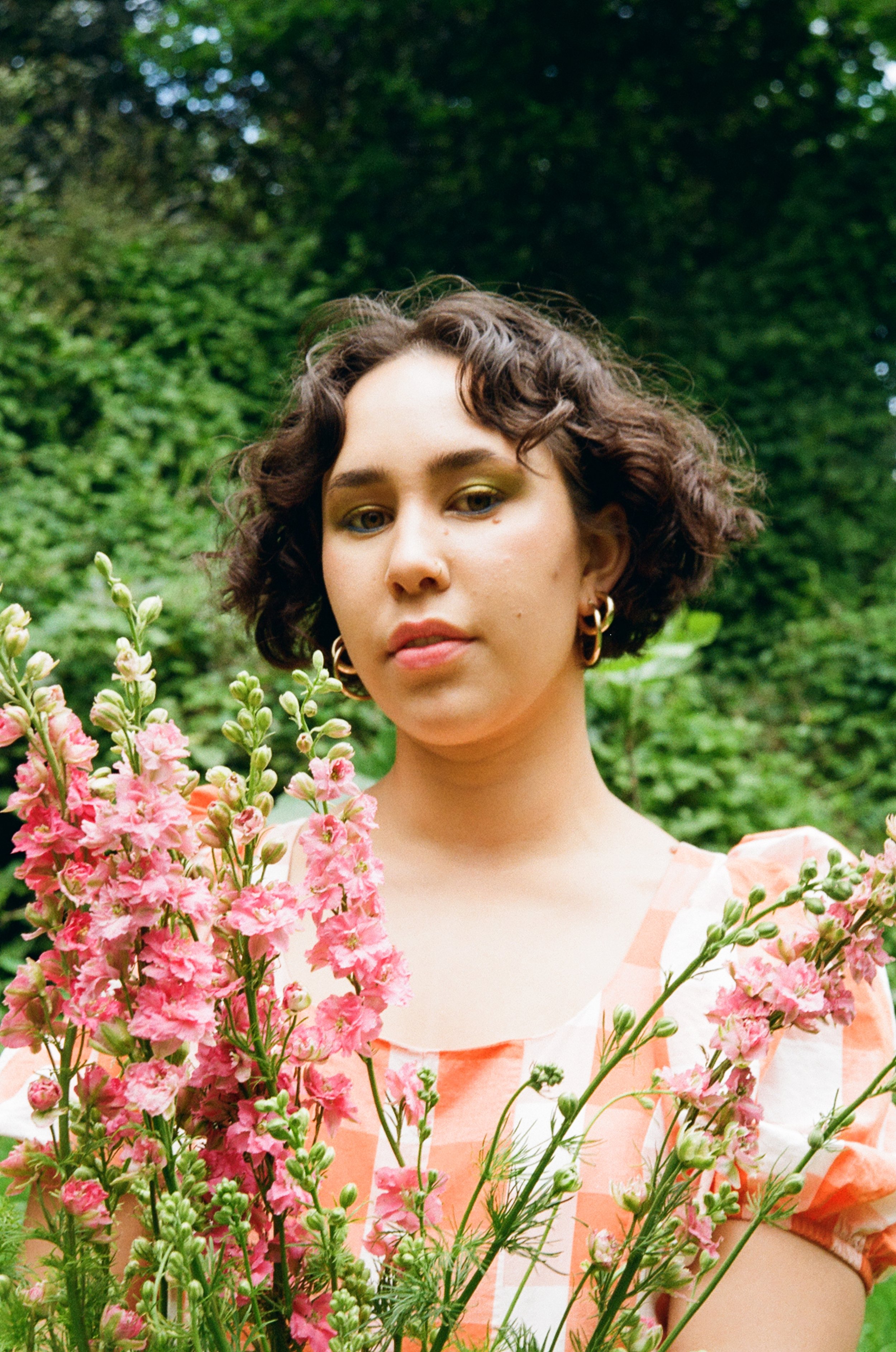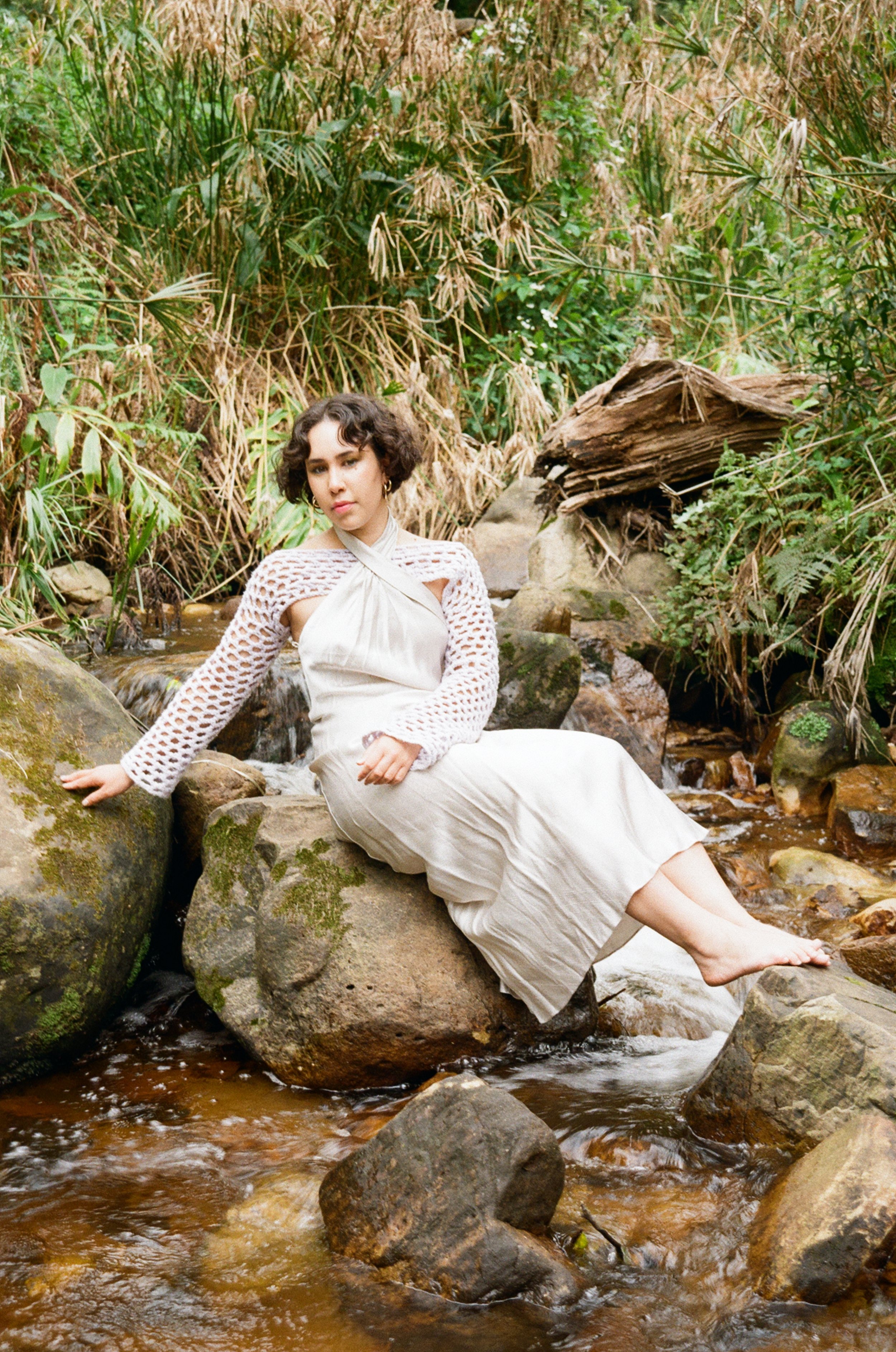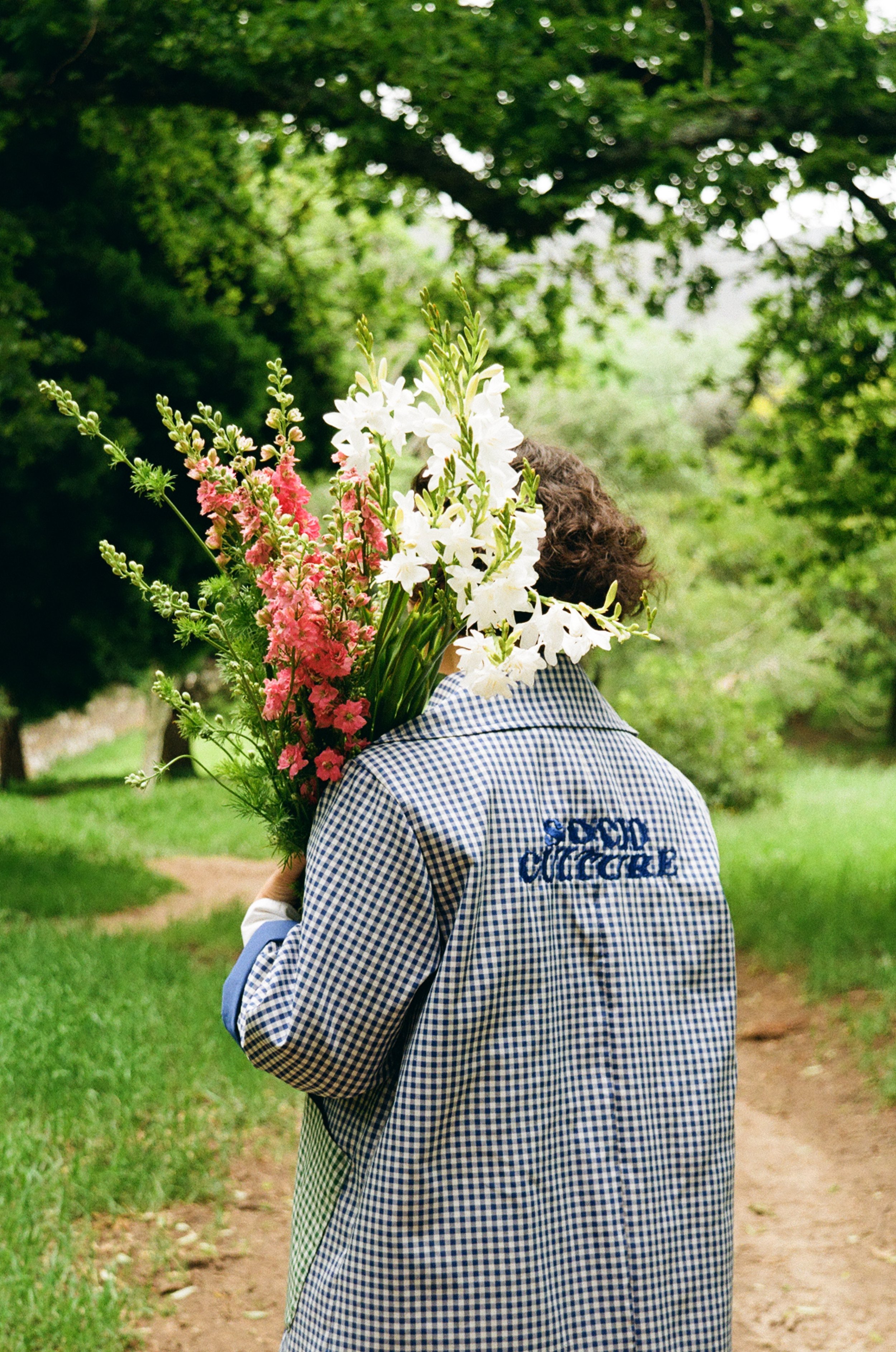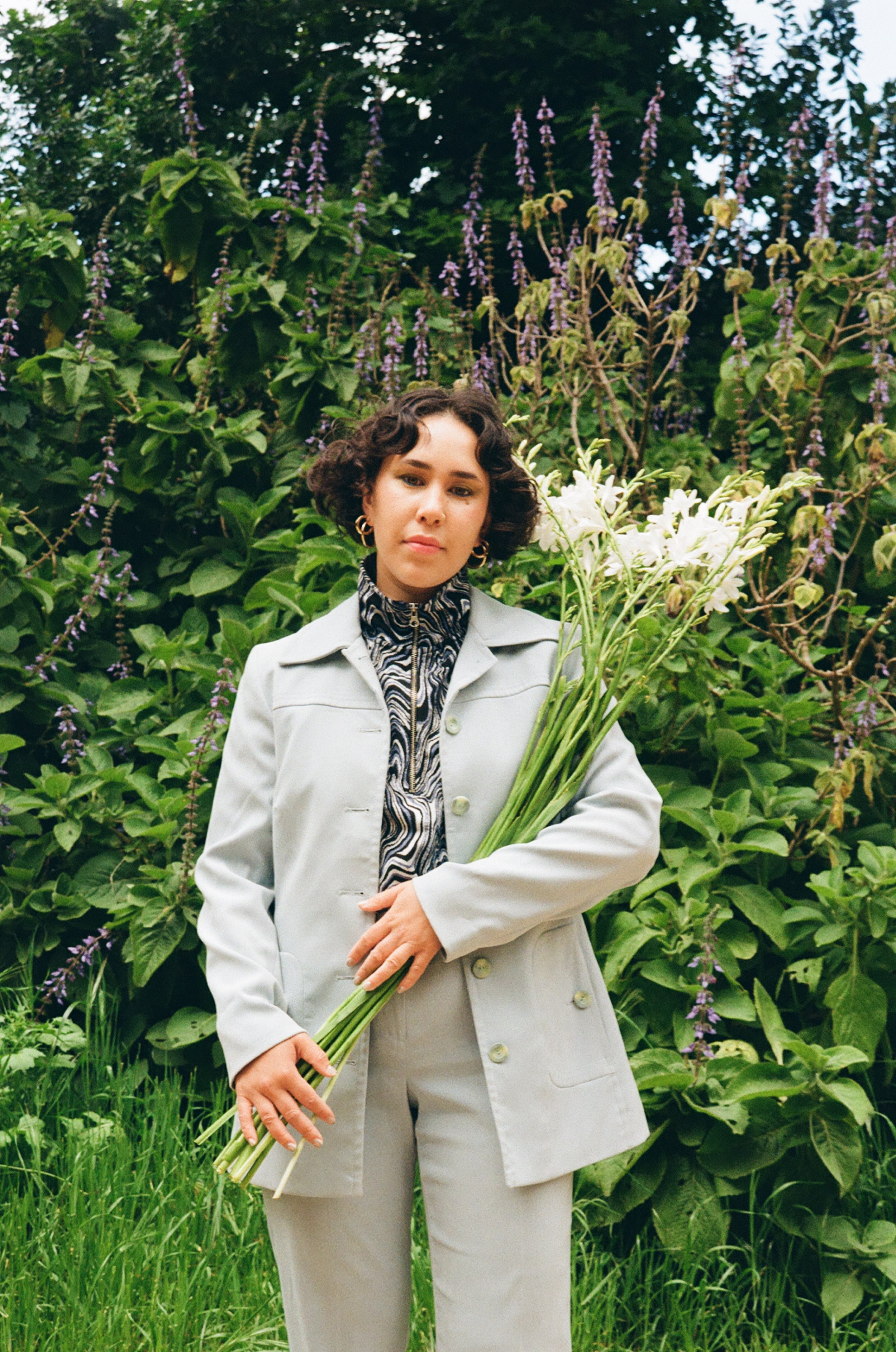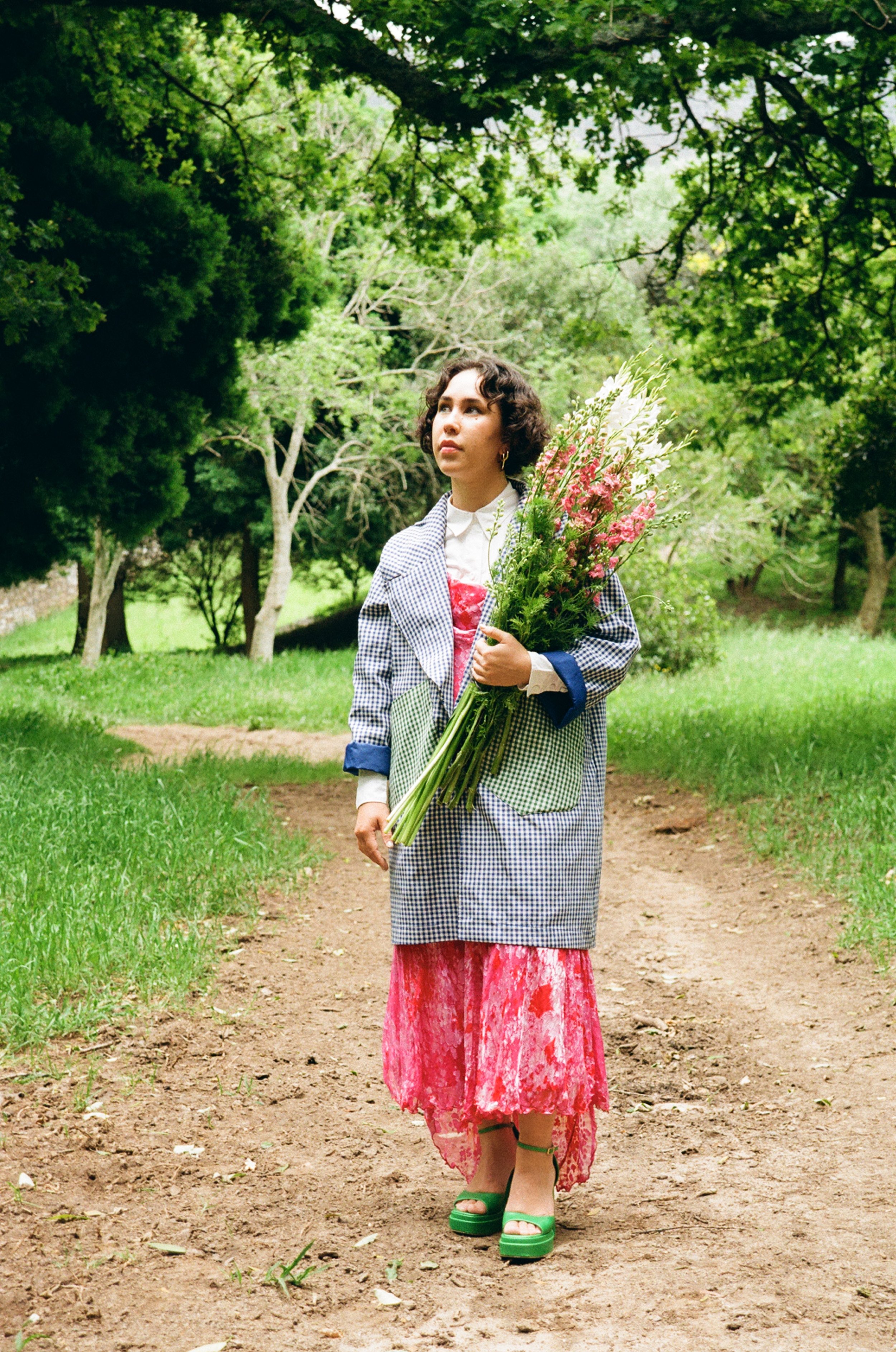The Beauty Behind Slow Fashion
By Frances Storey
Stella Hertantyo is a conscious, slow fashion enthusiast based in Cape Town, South Africa. She weaves storytelling and art through her fashion journey while engaging with the politics of fashion in a gentle and inviting way.
Stella Hertantyo, captured by Tandekile Mkize
She thanks thrifting – the desire to give old clothes new love while owning unique pieces that had histories and stories behind them – for her entry into this side of the fashion world. But if she were to dive into the specifics, it was in 2018 when she attended a clothing-swap event that she had a shift. It was a serendipitous moment. The warmth and camaraderie she felt in that space, where people shared not only clothing but also their stories, inspired her to explore alternatives to fast fashion. This was the turning point. It became clear to Stella that sustainable fashion offered a more meaningful way to connect with clothing.
At present for Stella, slow fashion represents a mindful way of existing, acknowledging interconnectedness with people, environments, and ecosystems, and striving to live in harmony without causing intentional harm. It involves a shift in perception from the consumer identity imposed by society, and instead focuses on creativity, well-being, and collective harmony. In contrast, fast fashion isolates people, obscures the truth behind its practices, and prioritizes profit over everything else.
“So slow fashion is just taking the time to be mindful about the way I'm existing and also questioning the kind of hidden systems that lie just below the surface of the things that are in our daily lives.”
Navigating the challenges of the fast fashion industry Stella finds inspiration in the small businesses, organisations, and individuals reshaping the fashion industry's rules. She continually highlights the power of storytelling in exposing the industry's toxicity, from chemical waste pollution to communities affected by waste colonialism.
In South Africa, the slow fashion movement faces unique challenges. While fashion may not be the highest priority in a country with pressing issues, she believes it can still play a significant role in addressing systemic challenges.
Despite these challenges, there is much potential for sustainable fashion in South Africa, given its history of a thriving textile industry. There's an opportunity to rebuild the industry sustainably, creating jobs and ethical practices, especially in a country with high unemployment rates. For this change to happen, it is paramount that creativity and innovation in South Africa's fashion space be nurtured, and sustainable practices promoted.
Gender also plays a significant role in the fashion industry, with exploitation disproportionately affecting women. The stark contrast between the gender makeup of the workforce and leadership positions in fashion companies. Slow fashion seeks to address these power imbalances, advocating for fair treatment and rights for marginalized individuals. It challenges traditional gender binaries and promotes inclusivity and acceptance of diverse identities. Addressing gender imbalances is crucial in dismantling the fast fashion system, as it involves addressing labour rights and sustainable livelihoods. A truly just fashion industry cannot coexist with fast fashion's exploitation and waste colonialism.
To become more educated about the impact of their fashion choices, Stella offers an invitation to start with curiosity. This means looking at clothing as more than mere garments: consider their origins, and understanding fabrics and the stories behind them. This also means exploring local organizations, campaigns, and resources addressing systemic fashion issues.
Stella suggests: “Start small. Repair and restyle clothing, and follow inspiring individuals who promote sustainable practices. Do not discard your fast fashion pieces but wear and restyle them while gradually incorporating sustainable choices into your wardrobes. Sustainable fashion is a journey, not a destination, be gentle with yourself.”
As she continues to work towards a future where the fashion industry is defined by a collective well-being approach and the ecosystem of sustainable fashion thrives, connecting local and global communities, we remain hopeful for the future of the fashion industry – over and beyond the borders of South Africa.
Thank you Stella for your wisdom, gentleness and storytelling that invites people in. Stella is a must-follow on Instagram for a daily reminder that the slow is beautiful.
Images by Tandekile Mkize



